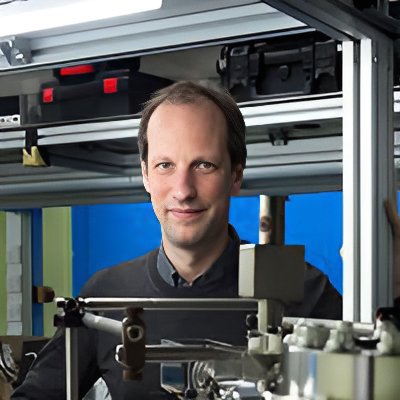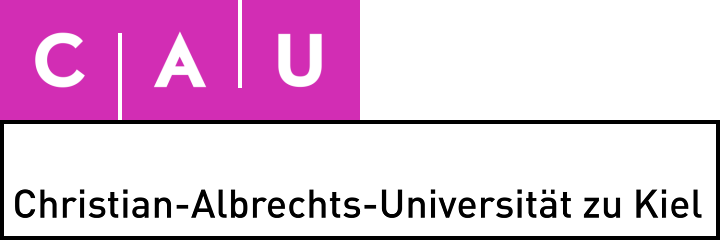Magnetic Sensing with Atomic Gases: Quantum Technologies at Work
Details
| Presenter: | Peter Krüger |
| Title: | Magnetic Sensing with Atomic Gases: Quantum Technologies at Work |
| Affiliation: | PTB, Department Biosignals und University of Sussex, Department for Physics and Astronomy, Brighton |
| Date: | 07.09.2023 |
| Time: | 17:00 h |
| Place: | Buiding F, room F-SR-III |
Contents of the Talk
 Magnetic fields are ubiquitous in nature and since a long time also in technology. Yet, there are many open questions, needs for research and emerging new applications. Standards need to be set or refined, and more accurate calibrations are required by industrial adopters of new technologies. A particular challenge and opportunity arise at the lowest end of the spectrum of magnetic fields. With demonstrated measurement sensitivities at and beyond the femtotesla (per root Hertz) scale, the neuronal activities of the brain following a peripheral nerve stimulus become detectable in a single trial, for example. While even the foundations of physics can be tested at the frontier of lowest metrological noise floors, a current trend is to make magnetic field measurement and imaging viable in application contexts beyond quantum physics laboratories. Here, we will discuss such developments in terms of sensor developments, measurement environments and key use cases. We will focus on atomic gas-based probes of stationary and slowly varying magnetic fields. With trapped ultracold gases, high resolution field mapping can be achieved with relevance to material developments such as indium tin oxide replacements for next-generation touch screens and solar panels. On the other hand, cells containing thermal atomic vapours can provide highest field sensitivities as part of optically pumped magnetometers with use in clinical neurology or current-density imaging in electric vehicle batteries.
Magnetic fields are ubiquitous in nature and since a long time also in technology. Yet, there are many open questions, needs for research and emerging new applications. Standards need to be set or refined, and more accurate calibrations are required by industrial adopters of new technologies. A particular challenge and opportunity arise at the lowest end of the spectrum of magnetic fields. With demonstrated measurement sensitivities at and beyond the femtotesla (per root Hertz) scale, the neuronal activities of the brain following a peripheral nerve stimulus become detectable in a single trial, for example. While even the foundations of physics can be tested at the frontier of lowest metrological noise floors, a current trend is to make magnetic field measurement and imaging viable in application contexts beyond quantum physics laboratories. Here, we will discuss such developments in terms of sensor developments, measurement environments and key use cases. We will focus on atomic gas-based probes of stationary and slowly varying magnetic fields. With trapped ultracold gases, high resolution field mapping can be achieved with relevance to material developments such as indium tin oxide replacements for next-generation touch screens and solar panels. On the other hand, cells containing thermal atomic vapours can provide highest field sensitivities as part of optically pumped magnetometers with use in clinical neurology or current-density imaging in electric vehicle batteries.
Short CV
Peter Krüger studied Physics, Mathematics, Chemistry and Philosophy in Berlin (FU), Innsbruck and Heidelberg and in 2004 graduated with a PhD from Heidelberg working with Anton Zeilinger and Jörg Schmiedmayer. After postdoctoral research studies with Claude Cohen-Tannoudji and Jean Dalibard as Humboldt and Marie Curie fellow at the ENS Paris, in 2007 he was appointed to Full Professor at the University of Nottingham to establish the Midlands Ultracold Atom Research Centre as a co-founder. In 2016 he moved his research group to Sussex, where he continues to hold a Research Professorship of Experimental Physics after his recent move to the Physikalisch-Technische Bundesanstalt (PTB) in Berlin in late 2021. He heads the Quantum Systems and Devices group and was a founding director of the Sussex Program for Quantum Research and now heads the Department for Biosignals at PTB. Krüger's field of specialization is atomic physics and quantum gases. He pioneered integrated circuits for cold atoms, so-called atom chips, and invented magnetic microscopy based on Bose-Einstein condensates. His research interests continue to span across fundamental questions of quantum physics to technology applications. Current projects include quantum magnetometry applications in brain imaging (magnetoencephalography), electric vehicle batteries and microscopic imaging of novel micro- and nanostructured materials and electronic devices.




